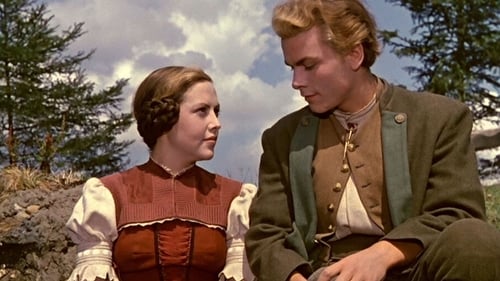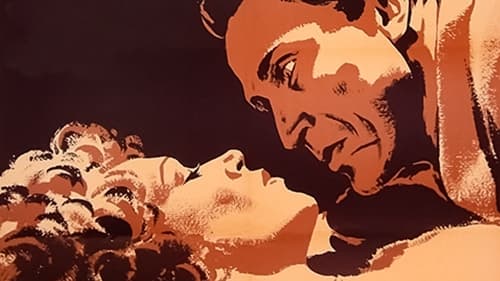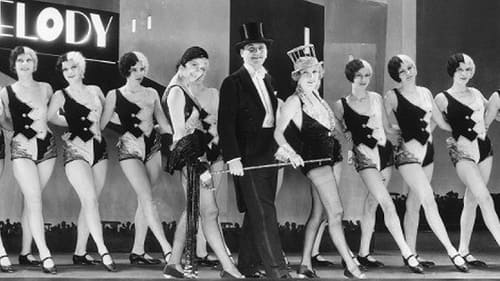Renée Stobrawa
Nascimento : 1897-10-13, Dresden, Germany
Morte : 1971-08-16

Producer

Ammia

Writer

Director

Frau Carruche

Screenplay

Königin-Mutter
A beautiful princess is betrothed to the prince of a neighboring kingdom, and when the time comes, she sets out with a small entourage to wed him. She is given a magic handkerchief by her mother, which she is told will protect her, along with a talking horse. Before she departs, her mother entrusts her to the care of her chambermaid, who promises to look after her. Unknown to the queen, however is the fact that the chambermaid desires the prince for herself, and has been concocting an evil plan to accomplish her ends. With the reluctant help of two bumbling servants, the chambermaid deprives the princess of the magic handkerchief, and tricks her into changing places with her, swearing her to secrecy. Once they arrive at the palace, the maid is taken for the princess, who becomes a goose girl.

Kätchens Tante
A tailor sends his sons away. They each learn a trade and receive a special gift from their teacher.

Gute Fee
"Cinderella" is a delightful musical version of the classic fairytale of a good-natured girl and her wicked stepmother. When the local prince holds a ball for all the women in the land so he can find a wife, Cinderella is forbidden to go. With the aid of her good fairy godmother, however, Cinderella attends the ball and wins the prince's heart.

Writer

Frau Schubert

Writer
Der Struwwelpeter is a popular German children's book. It comprises of ten illustrated and rhymed stories, mostly about children. Each has a clear moral that demonstrates the disastrous consequences of misbehavior in an exaggerated way. Writer/director Fritz Genschow adapted Hoffmann's book to the big screen. He made a career doing such films, he had done Hansel and Gretel and would go on to adapt Cinderella, Sleeping Beauty and other family films. Der Struwwelpeter, however, is weirder and darker than the Grimms' tales. They are heavy morality lessons in which children are burned to death, starved to death, or have their thumbs cut off. In Hoffmann's world the punishment usually far outweighs the crime. Genschow provided a happy ending: through the wonders of reverse action children are brought back from their fiery deaths, their thumbs are reattached, and their misdeeds undone through the power of St. Nicholas and some sort of Christmas miracle. (via forcesofgeek.com)

Der Struwwelpeter is a popular German children's book. It comprises of ten illustrated and rhymed stories, mostly about children. Each has a clear moral that demonstrates the disastrous consequences of misbehavior in an exaggerated way. Writer/director Fritz Genschow adapted Hoffmann's book to the big screen. He made a career doing such films, he had done Hansel and Gretel and would go on to adapt Cinderella, Sleeping Beauty and other family films. Der Struwwelpeter, however, is weirder and darker than the Grimms' tales. They are heavy morality lessons in which children are burned to death, starved to death, or have their thumbs cut off. In Hoffmann's world the punishment usually far outweighs the crime. Genschow provided a happy ending: through the wonders of reverse action children are brought back from their fiery deaths, their thumbs are reattached, and their misdeeds undone through the power of St. Nicholas and some sort of Christmas miracle. (via forcesofgeek.com)

Frau Holle

Frau Köper
A Brothers Grimm fairy tale involving siblings finding a gingerbread house in the middle of the forest owned by an evil witch who captures them and by fattening them, intends to have them for her meal.

Mutter

Writer

Lavish adaptation of Wilhelm Hauff′s fairy tale: Young charburner Peter Munk dreams of joining the upper class. He makes a deal with the sinister Holländer-Michel, who offers to trade Peter′s human heart for one made of stone. Once he has the "cold heart" in his body, Peter eventually strikes a fortune and enjoys great wealth, but at the same time, he becomes a bitter and emotionless man – and, having lost all traces of humanity, even murders his wife Lisbeth. Only then does Peter Munk finally realize what has become of him, and he decides to regain his real heart from Holländer-Michel.

Frau Bremer
Dr. Blum, a Jewish manufacturer, is falsely accused of a murder. Even when the real killer’s identity becomes evident, the state prosecutor refuses to accept Blum’s innocence.

Frau Dr. Lemke

A stuffy old civil servant is forced to retire during World War II, but when his son, a Navy submariner, is lost at sea and his city is heavily bombed by English bombers, his old patriotism is re-awakened and he determines to be of use to his country once again

Frau Wendisch

Mutter Panse
The exploits of a young German youth during World War II in Argentina.

Erna Schramm

Käthe

Frau Haucke

Fräulein Baumann

In a transport museum, the items on display begin to tell their stories. Most interesting is the history of the Pullman car. In the beginning, it served as transport for a princely family; then became the headquarters car for the military high command; and then, most adventurous of all, it ended up with a circus. Converted to a bar, it finally had its day and was supposed to serve as a placard carrier. Luckily, the museum saved it from this sad fate.

Roswitha
Theodor Fontane's novel about a young girl who as a teenager marries a stiff bureaucrat, has a love affair out of boredom and loneliness and has to suffer the consequences years later should be well known.

Frau Lebrecht

Billa

Natalie
The formerly wealthy Baron Carl Erich von Wenden is desperate. His debts are out of control and he is forced to give up everything he owns. Since he doesn’t want to burden his daughter Rosy with all of this, he tells her he’ll take a pleasure trip with her … in truth, however, he has to work as an assistant waiter in the evenings, while Rosy stays in the hotel. He constantly fears his daughter will discover the truth; and this is a shame he cannot bear.

Director

Writer

Mutter

Baronin Lehzen, Victorias Erzieherin
After her Prime Minister Lord Melbourne arranges a marriage for her with the German Prince Albert, the young Queen Victoria decides to leave London and spend some time in Kent. While there she meets a handsome young German and falls in love, unaware that he is her intended husband Albert.

Greta

Frau Kohler
Hell on Earth (German: Niemandsland) is a 1931 German film directed by Victor Trivas. The film is also known as No Man's Land in France.

Frau Matjunke

Die Frau
An impression of the state of the world in 1929, contrasting similarities and differences in religion, customs, art and entertainment from all over the world. The film is constructed like a symphony.













